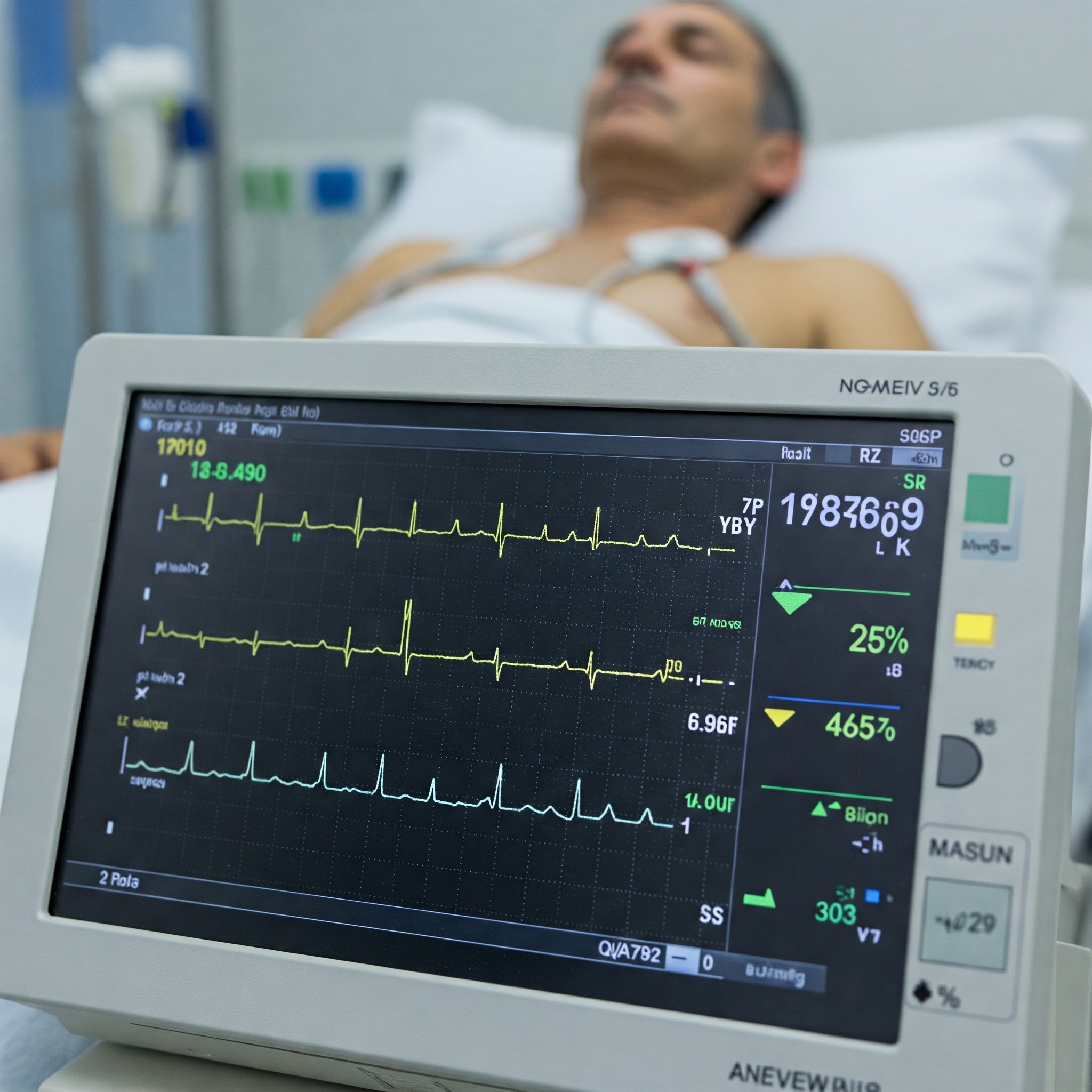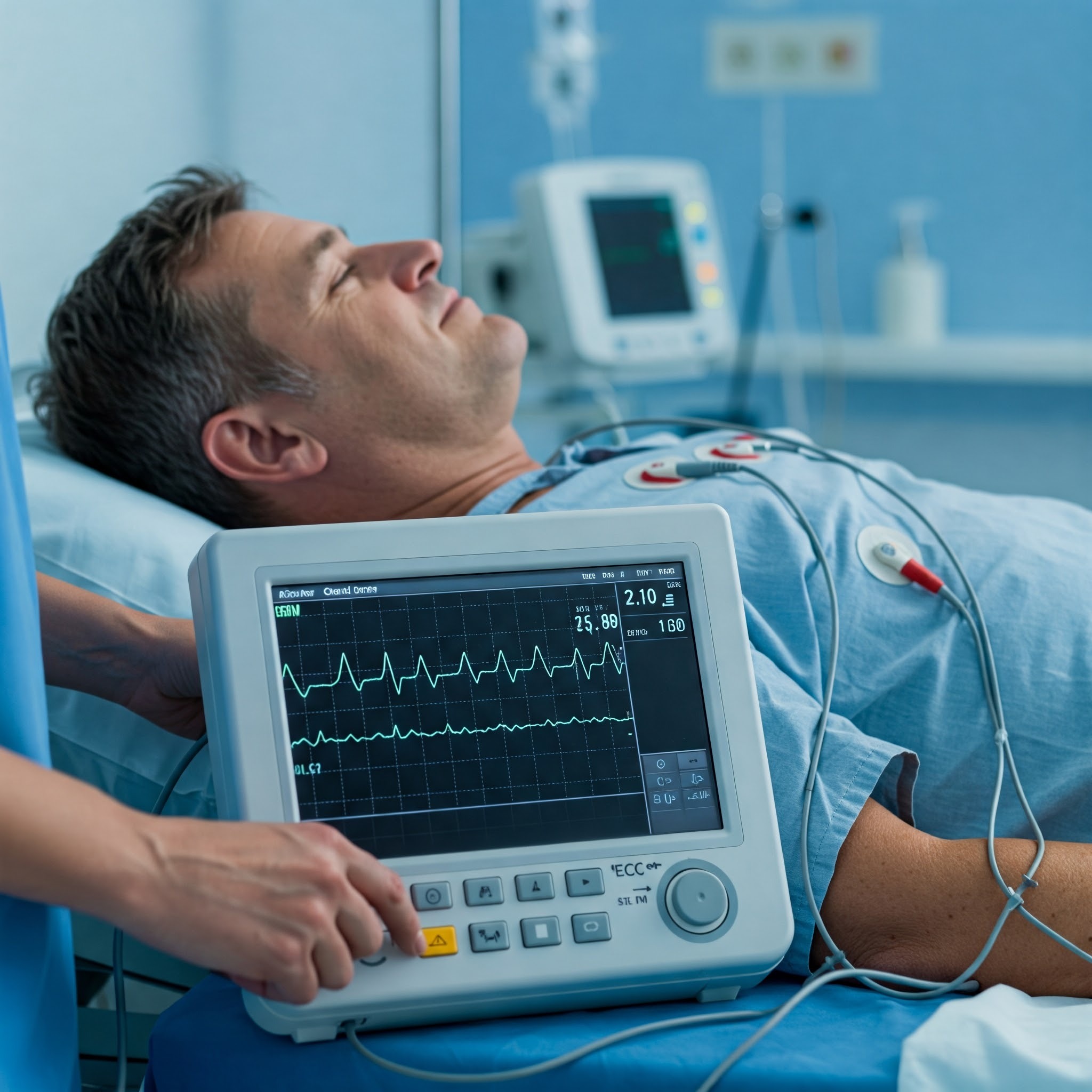ECG
Precise ecg testing for heart health at neo-diagnostics
Accurate cardiac monitoring to detect heart conditions and ensure cardiovascular wellness
At Neo-Diagnostics, we provide Electrocardiogram (ECG) testing, a vital diagnostic procedure that assesses heart health by recording its electrical activity. Using an advanced ECG machine, our specialists monitor the rhythm and rate of your heartbeat to detect irregularities such as arrhythmias, heart attacks, and other cardiovascular conditions.
During the ECG procedure, ECG sensors are placed on the skin to capture electrical signals from the heart. These signals are displayed as ECG waves on an ECG graph, which helps doctors interpret heart function. A normal ECG shows a steady heartbeat with properly structured waves, while deviations may indicate underlying issues. Our specialists provide a detailed ECG reading and generate a precise ECG report to guide further diagnosis and treatment.
Whether you need a routine screening or urgent cardiac evaluation, Neo-Diagnostics ensures accurate, timely, and expert-led ECG testing, helping you take proactive steps toward better heart health


Neo-diagnostics’ ecg testing clinic
At Neo-Diagnostics, our ECG test services provide accurate and reliable heart health assessments to detect potential cardiac conditions. An ECG machine records the heart’s electrical activity, capturing essential details about rhythm and rate to identify irregularities such as arrhythmias, heart attacks, or other cardiovascular concerns.
During the ECG procedure, small ECG sensors are placed on the chest, arms, and legs to measure heart activity. These signals are displayed as ECG waves on an ECG graph, allowing specialists to interpret the heart’s function. A normal ECG shows a consistent heartbeat pattern, while variations may indicate underlying health issues. After testing, a detailed ECG reading is provided in the form of an ECG report, ensuring a comprehensive analysis of heart performance.
At Neo-Diagnostics, we prioritize accuracy, efficiency, and patient comfort, offering expert-led ECG testing to help individuals take proactive steps toward better cardiovascular health.
- Understanding ecg and its role in heart health
An ECG test is a fundamental diagnostic tool used to assess heart function by recording its electrical activity.
This topic can cover how an ECG machine works, the importance of regular ECG procedures, and how ECG helps detect early signs of heart disease. Discussing ECG sensors and how they capture ECG waves can help patients understand the process and why it is essential for preventive cardiac care
Here are some of the key procedures available at our hospital:
- Breast Augmentation
- Breast Lift
- Breast Reduction
- Breast Reconstruction
The specific procedure recommended depends on your unique goals, body type, and overall health. It’s essential to discuss your individual needs with our experienced surgeons, who will guide you through every step of the process to ensure the best possible outcome. Our team is here to support you at every stage of your aesthetic journey. Feel free to reach out for more information or to schedule a consultation.
- How to read an ecg report: interpreting ecg graphs
Patients often receive an ECG report but may not fully understand what the ECG graph represents.
This topic can focus on the different ECG waves (P wave, QRS complex, T wave), what they indicate about heart function, and how to recognize abnormalities. Understanding normal ECG patterns versus irregular ones can help individuals take proactive steps in maintaining heart health.
- Common heart conditions detected by an ecg test
An ECG test is crucial for diagnosing various cardiac conditions such as arrhythmias, heart attacks, and ischemia. This discussion can include how the test helps in monitoring heart rhythm, identifying heart rate irregularities, and detecting early warning signs of cardiovascular diseases. It can also explain when doctors recommend ECG testing based on symptoms like chest pain, dizziness, or palpitations.
- The ecg procedure: what to expect during the test
Many patients feel anxious before undergoing an ECG procedure due to a lack of knowledge about what to expect. This topic can explain the step-by-step process of an ECG test, from electrode placement using ECG sensors to how the heart’s activity is measured and recorded. Discussing patient preparation, test duration, and post-test guidelines can help alleviate concerns.
- Ecg vs. Other cardiac diagnostic tests: when do you need one?
Patients may wonder how an ECG test compares to other heart diagnostic tests like 2D Echo or Holter monitoring. This topic can clarify the differences, such as when an ECG reading is sufficient for detecting heart issues and when additional tests are necessary. It can also address the limitations of ECG and why follow-up tests may be required for a more comprehensive heart health assessment.
Each of these topics can help educate patients on the importance of ECG testing at Neo-Diagnostics and encourage proactive cardiac care.

Frequently asked questions
What is an ECG test, and why is it done?
An ECG test (electrocardiogram) records the electrical activity of the heart to assess heart health. It helps detect irregular heartbeats, heart disease, and past heart attacks by analyzing ECG waves and heart rhythms.
How does an ECG machine work?
An ECG machine records electrical signals from the heart using electrodes placed on the skin. These signals are displayed as an ECG graph, which cardiologists analyze for abnormalities in heart rhythm and rate.
What do normal ECG readings look like?
A normal ECG shows a consistent rhythm and rate, with clearly defined ECG waves (P, QRS, and T waves). Any deviations may indicate heart conditions such as arrhythmias or ischemia.
How is an ECG procedure performed?
The ECG procedure involves placing electrodes on the chest, arms, and legs to capture heart activity. It is quick, painless, and non-invasive, taking only a few minutes to complete.
Where can I get an ECG test near me?
If you’re searching for an ECG test near me, Neo-Diagnostics provides state-of-the-art ECG testing with expert interpretation to ensure accurate diagnosis and timely medical intervention.

Service line
Our locations
Neo-woman clinic
Apte Road
1212, Apte Rd, opp. Centro Hotel, Shirole Road, Shivajinagar, Pune, Maharashtra 411004
Contact us at: 9423039292
Our locations
Neo-woman clinic
Hadapsar
Gandharva Empire, 3rd floor, Above Fab India, Raskar Chowk, Amanora Park, Hadapsar, Pune, Maharashtra 411036
Contact us at: 7030114488
Copyright © 2026 neo-Woman – all rights reserved.
:::| powered by dimakh consultants |:::